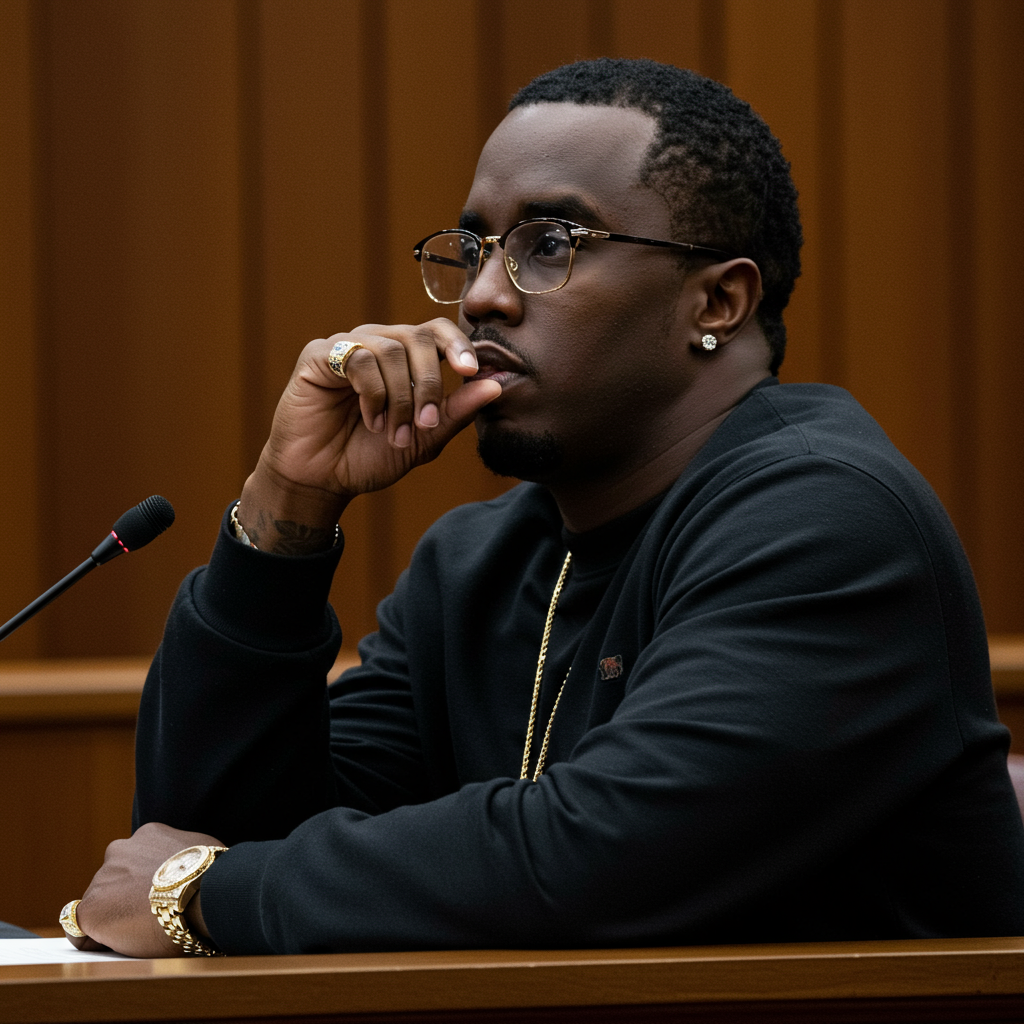Sean “Diddy” Combs Sex Trafficking & Racketeering Trial: Closing Arguments Wrap Up
The high-profile federal criminal trial of music mogul Sean “Diddy” Combs has reached a critical stage, with both the prosecution and defense delivering their final appeals to the jury through extensive closing arguments. Combs faces serious charges including racketeering conspiracy, sex trafficking by force, fraud or coercion, and transportation to engage in prostitution. He has pleaded not guilty to all counts and could face a minimum of 15 years and potentially life in prison if convicted.
After weeks of testimony and evidence presentation, the courtroom proceedings focused sharply on the final narratives crafted by each legal team, attempting to persuade the jury on the meaning of the complex evidence presented. A verdict has not yet been reached, and jury deliberations could begin soon following final instructions from the judge.
The Prosecution’s Case: A Criminal Enterprise Led by Force
Federal prosecutors, led by Assistant U.S. Attorney Christy Slavik, presented a forceful closing argument lasting nearly five hours. They urged the jury to find Combs guilty, portraying him as the ruthless head of a criminal enterprise who used his immense “money, power and influence” to abuse, threaten, and coerce women.
Key points highlighted by the prosecution included:
Leader of a Criminal Enterprise: Combs allegedly operated a system where an “inner circle” or “loyal lieutenants” facilitated crimes, including obtaining drugs and paying escorts, all serving to promote his power and conceal his actions.
Coercion into “Freak Offs”: The prosecution detailed allegations from witnesses like former girlfriend Cassie Ventura and a woman identified as “Jane,” claiming they were forced into prolonged, drug-fueled sexual encounters described as “freak-offs” or “hotel nights.” They argued these events were “labor and services” demanded by Combs, often leaving the women physically ill but still required to participate.
Use of Force and Threats: Testimony alleged years of physical and sexual abuse against multiple women, including former assistant “Mia.” The prosecution argued that Combs used intimidation, drugs like Ecstasy and MDMA, and threats to control victims and ensure their silence. The infamous 2016 hotel surveillance video showing Combs assaulting Cassie Ventura was presented as crucial evidence demonstrating the use of force to compel participation in a sexual act, which they argued constitutes sex trafficking under the law.
Racketeering Charges: To prove racketeering conspiracy, the prosecution argued the jury needed to find Combs agreed to commit at least two underlying criminal acts. They cited evidence of “hundreds of acts of drug distribution” by Combs and his staff as sufficient for conviction, along with other alleged acts like kidnapping, arson, bribery, witness tampering, and forced labor.
Interstate Transportation: Evidence like messages and credit card records was presented to show Combs arranged and paid for escorts to travel across state lines for sex, arguing that even if participants consented, facilitating such travel for paid sex is illegal.
Addressing Why Victims Stayed: The prosecution countered arguments about victims’ apparent compliance by citing “trauma bonds” and a “climate of fear” created by Combs, detailing thwarted attempts to leave and a post-breakup rape claim by Ventura.
The prosecution concluded by asserting that Combs had evaded justice for too long and that the evidence proved his guilt beyond a reasonable doubt, calling for a conviction on all charges.
The Defense’s Rebuttal: A Lifestyle, Not a Crime Ring
Combs’ lead attorney, Marc Agnifilo, presented the defense’s closing argument, strongly challenging the prosecution’s narrative and describing the case as a “tale of two trials.” He argued that the government had wrongly attempted to criminalize a consensual sexual “lifestyle” that involved “swingers, threesomes, whatever it is,” framing it instead as sex trafficking and racketeering.
The defense made several key points:
Not About Sex Trafficking: Agnifilo contended the core issue was domestic violence, not the federal charges. Notably, the defense made a significant concession regarding the 2016 video, stating, “We own the domestic violence — I hope you guys know that. It happened. That’s not charged.” He suggested Combs would have pleaded guilty if domestic violence was the charge but would “fight to the death” against the current accusations.
Relationships as “Love Stories”: The defense sought to frame Combs’ intense relationship with Cassie Ventura as a “great modern love story,” albeit complicated by jealousy and infidelity. Agnifilo encouraged the jury to read their text messages as evidence of genuine love, arguing they were the “antithesis” of a racketeering conspiracy.
Challenging Victim Credibility: The defense portrayed Ventura as a “gangster” who “played him good,” citing her use of a burner phone and simultaneous relationship with Kid Cudi as evidence she was not a defenseless victim. They also highlighted Ventura’s substantial financial settlements ($20 million from Combs, part of a $30 million total) as potential motivation for her claims.
Mocking the Evidence: Agnifilo ridiculed the FBI raids on Combs’ properties, pointing to the seizure of items like “more than 1,000 bottles of baby oil and lubricant” and a few Valium pills as trivial and not indicative of a criminal kingpin. He argued the government was essentially putting a lifestyle, not specific crimes, on trial.
Portraying Combs’ Character: The defense depicted Combs as a “successful self-made Black entrepreneur” who was philanthropic and championed diversity, equity, and inclusion. Agnifilo argued that his employees were loyal and “loved him,” describing working for Combs as the “single greatest experience” or akin to attending “Harvard Business School,” suggesting their dedication was not due to coercion related to criminal activity. He also noted Combs continues to pay for housing for his ex-girlfriend “Jane.”
Denial of Federal Charges: While admitting to domestic violence shown in the video (a charge not brought against him), the defense adamantly denied that Combs committed the acts of racketeering, sex trafficking, and transportation for prostitution as alleged in the indictment.
The defense notably rested its case quickly without calling any witnesses, challenging the government to prove its case beyond a reasonable doubt.
What Comes Next
Following the defense’s closing argument, the prosecution was expected to deliver a shorter rebuttal. Judge Arun Subramanian will then provide the jury with detailed instructions on the relevant laws and how to apply them to the evidence presented. Jury deliberations could potentially begin later today or on the next court day, with the fate of Sean “Diddy” Combs resting in the hands of the jury.



